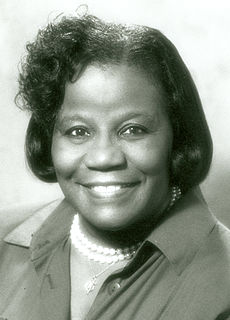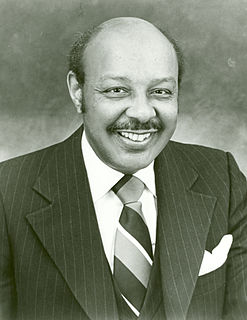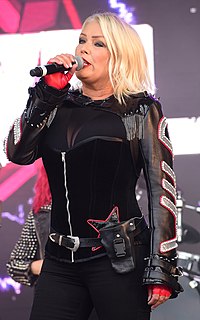A Quote by Carrie P. Meek
If we were really tough on crime, we'd try to save our children from the desperation and deprivation that leave them primed for a life of crime.
Quote Topics
Related Quotes
I think there is a lot of crime caused by desperation, and it doesn't mean that people commit crime because they're poor, but certainly a lot of people who are poor commit crime and they might not if they weren't poor. You understand the difference there? That's not news, but it comes up when I hear people say poverty doesn't affect crime - that crime is still going down in America even though the economy is bad.
I am convinced that imprisonment is a way of pretending to solve the problem of crime. It does nothing for the victims of crime, but perpetuates the idea of retribution, thus maintaining the endless cycle of violence in our culture. It is a cruel and useless substitute for the elimination of those conditions--poverty, unemployment, homelessness, desperation, racism, greed--which are at the root of most punished crime. The crimes of the rich and powerful go mostly unpunished.
The best crime stories are always about the crime and its consequences - you know, 'Crime And Punishment' is the classic. Where you have the crime, and its consequences are the story, but considering the crime and the consequences makes you think about the society in which the crime takes place, if you see what I mean.
Tonight, I propose a 21st Century Crime Bill to deploy the latest technologies and tactics to make our communities even safer. Our balanced budget will help put up to 50,000 more police on the street in the areas hardest hit by crime, and then to equip them with new tools from crime-mapping computers to digital mug shots. We must break the deadly cycle of drugs and crime.
The question of crime is one of concern to everybody. But the position is that the security forces in our country for the last four decades did not concentrate on suppressing crime. Their main objective was to suppress, to crush political activity. And in the process, crime grew to unacceptable proportions. And criminals were able to form powerful syndicates, and they virtually took over the control of the life of the community in certain areas.
During the Great Depression, levels of crime actually dropped. During the 1920s, when life was free and easy, so was crime. During the 1930s, when the entire American economy fell into a government-owned alligator moat, crime was nearly non-existent. During the 1950s and 1960s, when the economy was excellent, crime rose again.
In a country that provides no subsidized child care and no mandatory family leave, no assurance of flexibility in the workplace for parents, no universal preschool and minimal safety nets for vulnerable families, making it a crime to offer children independence in effect makes it a crime to be poor.


































